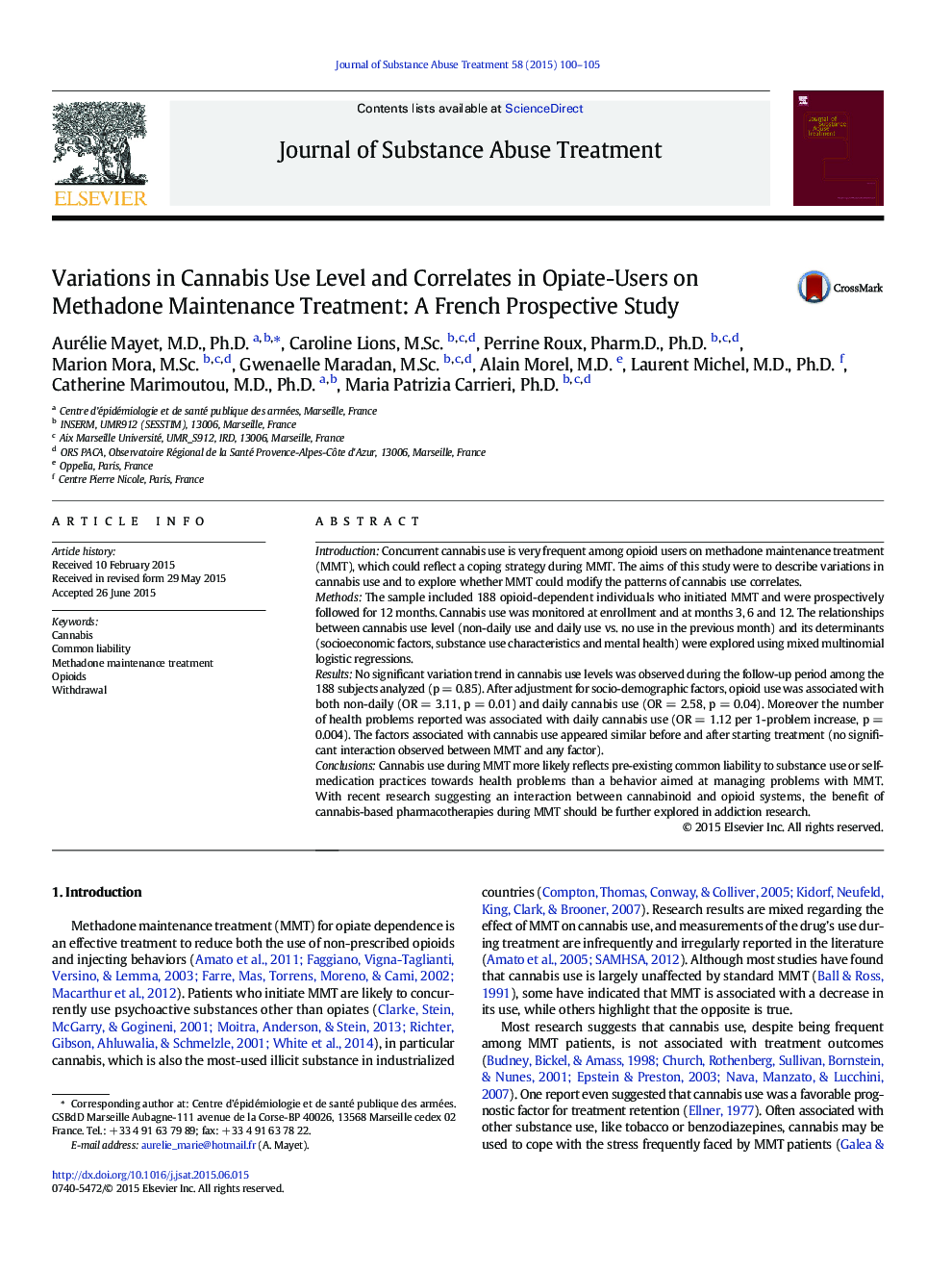| کد مقاله | کد نشریه | سال انتشار | مقاله انگلیسی | نسخه تمام متن |
|---|---|---|---|---|
| 328793 | 543407 | 2015 | 6 صفحه PDF | دانلود رایگان |
• No significant variation in levels of cannabis use was found among methadone patients.
• Factors associated with cannabis use did not significantly vary following treatment initiation.
• The use of non-prescribed opioids was significantly associated with an increased likelihood of cannabis use.
• Cannabis use during methadone treatment is more likely to reflect pre-treatment factors than a coping practice during methadone treatment.
IntroductionConcurrent cannabis use is very frequent among opioid users on methadone maintenance treatment (MMT), which could reflect a coping strategy during MMT. The aims of this study were to describe variations in cannabis use and to explore whether MMT could modify the patterns of cannabis use correlates.MethodsThe sample included 188 opioid-dependent individuals who initiated MMT and were prospectively followed for 12 months. Cannabis use was monitored at enrollment and at months 3, 6 and 12. The relationships between cannabis use level (non-daily use and daily use vs. no use in the previous month) and its determinants (socioeconomic factors, substance use characteristics and mental health) were explored using mixed multinomial logistic regressions.ResultsNo significant variation trend in cannabis use levels was observed during the follow-up period among the 188 subjects analyzed (p = 0.85). After adjustment for socio-demographic factors, opioid use was associated with both non-daily (OR = 3.11, p = 0.01) and daily cannabis use (OR = 2.58, p = 0.04). Moreover the number of health problems reported was associated with daily cannabis use (OR = 1.12 per 1-problem increase, p = 0.004). The factors associated with cannabis use appeared similar before and after starting treatment (no significant interaction observed between MMT and any factor).ConclusionsCannabis use during MMT more likely reflects pre-existing common liability to substance use or self-medication practices towards health problems than a behavior aimed at managing problems with MMT. With recent research suggesting an interaction between cannabinoid and opioid systems, the benefit of cannabis-based pharmacotherapies during MMT should be further explored in addiction research.
Journal: Journal of Substance Abuse Treatment - Volume 58, November 2015, Pages 100–105
